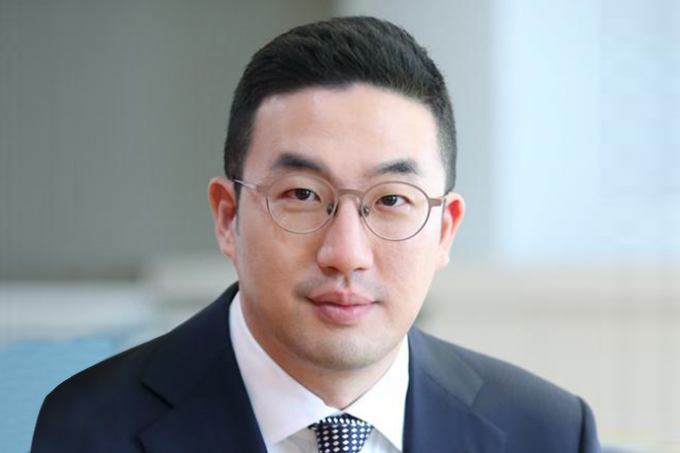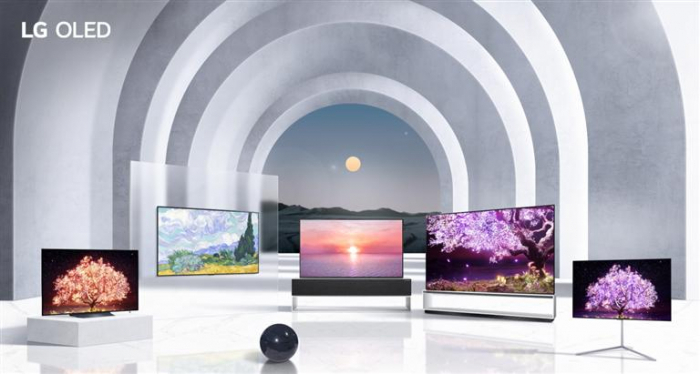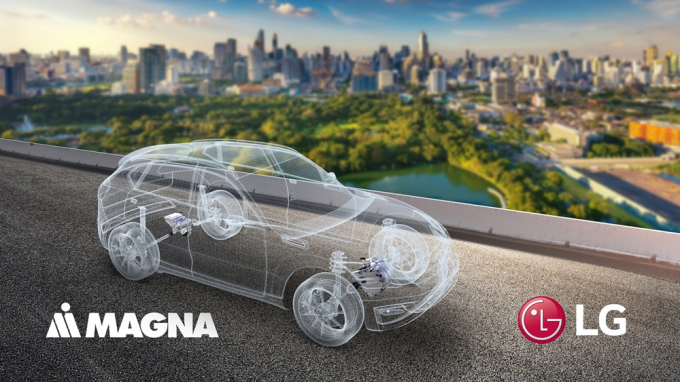LG undergoes restructuring under young Chairman Koo's bold leadership
Since taking the helm in 2018, Koo has made LG a leading player in EV batteries, automotive electronics and OLED TVs
By Jun 20, 2021 (Gmt+09:00)
LG Chem to sell water filter business to Glenwood PE for $692 million


KT&G eyes overseas M&A after rejecting activist fund's offer


Kyobo Life poised to buy Japan’s SBI Group-owned savings bank


StockX in merger talks with Naver’s online reseller Kream


Meritz backs half of ex-manager’s $210 mn hedge fund



On June 29, LG Group Chairman Koo Kwang-mo will reach a three-year mark of serving as the head of South Korea's fourth-largest conglomerate. This year is considered a turning point for LG as the group is seeing meaningful results stem from Koo's leadership.
Since taking the helm in 2018, Koo's management approach has been referred to as a 'choice and concentration' strategy in which underperforming businesses were sold off or shut down while concentrating the group's resources into its core businesses including electric vehicle batteries, automotive electronics and OLED TVs.
It began with closing down the group's fuel cell subsidiary, LG Fuel Cell Systems, to focus on the EV battery business in 2019. The group also sold off other non-core businesses such as its water treatment businesses, HiEntech and LG Hitachi Water Solutions, as well as LG Uplus' payment gateway business.
In particular, LG's decision in April to exit the mobile phone business in 26 years made headlines. The group's mobile phone division had been in the red for 23 consecutive quarters, reaching a cumulative operating loss of 5 trillion won ($4.4 billion).
"The first stage of 'choice and concentration' is being bold and choosing what to get rid of," said a company official adding that LG affiliates are still either scaling down or identifying businesses that need to be scrapped under Koo's management.
SPENDING MONEY WHERE IT NEEDS TO BE SPENT
Chairman Koo does not hesitate to dig deep into the pockets when there's a business that needs to be fostered. Since his appointment, LG has injected over 4 trillion won ($3.5 billion) into M&A deals and joint ventures. The sizeable investments were mostly made in the group's core growth drivers such as EV batteries, OLED TV panels and automotive electronics.

LG Display's OLED TV panel business is a prime example. Following the rising demand, LG decided to build an additional OLED TV panel plant in Guangzhou, China determining that the OLED TV would no longer remain a niche product, but become mainstream.
It was a successful move. Since the end of last year, the Guangzhou-based plant's OLED TV panel production volume rose from an annual 4.5 million units to over 8 million units.
According to Hana Financial Investment, LG Display's OLED TV panel sales jumped from 2.5 trillion won in 2018 to 3.2 trillion won in 2020, up by 57.2%. This year, the company is predicted to top 5 trillion won in OLED TV panel sales alone.
LG Electronics has also seen its OLED TV business perform well with shipments increasing by 31.4% from 1.56 million units in 2018 to 2.05 million units in 2020.
BATTERY & AUTOMOTIVE ELECTRONICS ON THE RISE
The EV battery business has become the group's forte under Koo's management. In December 2020, LG Chem Ltd. spun off its battery business as a standalone entity, LG Energy Solution Ltd. It was a strategic move aimed at firming up the group's expertise in the EV battery sector and raising funds via an initial public offering to make aggressive investments.
Earlier in 2019, LG Chem and General Motors Co. each committed 1 trillion won to set up a joint venture, Ultium Cells LLC, and build a 35 gigawatt-hours (GWh) EV battery plant in Lordstown, Ohio. The plant is expected to start operations next year.
In March this year, it was reported that LG Energy Solution and GM are planning to build a second 35 GWh EV battery plant in Tennessee.
So far, LG has invested over 6 trillion won in its US-based operations. Moving forward, the group plans to increase investments in core materials for EV batteries such as cathode materials.

Automotive electronics is also a highly anticipated business given that LG affiliates' total order backlog is valued at around 70 trillion won ($62 billion) as of the end of last year.
Industry watchers expect to see the backlog increase even more since LG Magna e-Powertrain Co., a joint venture between LG Electronics and the world's No. 3 auto parts maker Magna International Inc., is set to launch next month. The JV will manufacture e-motors, inverters and onboard chargers – key components for electric cars.
"Chairman Koo will think over a decision very carefully, but once his mind is made up then there's no turning back. We expect to see hefty investments made in the group's core businesses such as OLED, EV battery and automotive electronics," said an LG group official.
Write to Song Hyung-suk at click@hankyung.com
Danbee Lee edited this article.
-
 BatteriesLG Energy supplies batteries to world’s largest Vistra ESS project
BatteriesLG Energy supplies batteries to world’s largest Vistra ESS projectJun 17, 2021 (Gmt+09:00)
1 Min read -
 Mobile networksSamsung, LG take major steps forward in 6G commercialization
Mobile networksSamsung, LG take major steps forward in 6G commercializationJun 17, 2021 (Gmt+09:00)
4 Min read -
 IPOsLG Energy Solution applies for IPO seen to raise over $9 bn
IPOsLG Energy Solution applies for IPO seen to raise over $9 bnJun 08, 2021 (Gmt+09:00)
2 Min read -
 Business restructuringLG Electronics expands overseas appliance plants as it exits phone business
Business restructuringLG Electronics expands overseas appliance plants as it exits phone businessJun 02, 2021 (Gmt+09:00)
3 Min read -
 OLED TVsLG Electronics enjoys OLED TV boom with record Q1 shipments
OLED TVsLG Electronics enjoys OLED TV boom with record Q1 shipmentsMay 25, 2021 (Gmt+09:00)
2 Min read -
 Water technologyLG Chem's water filter business thrives amid high demand in Middle East
Water technologyLG Chem's water filter business thrives amid high demand in Middle EastMay 20, 2021 (Gmt+09:00)
3 Min read -
 AI investmentLG Group to invest $106 mn in advanced AI tech development
AI investmentLG Group to invest $106 mn in advanced AI tech developmentMay 17, 2021 (Gmt+09:00)
2 Min read -
 EarningsLG Electronics expects auto parts business to turn profitable in H2
EarningsLG Electronics expects auto parts business to turn profitable in H2Apr 29, 2021 (Gmt+09:00)
2 Min read


